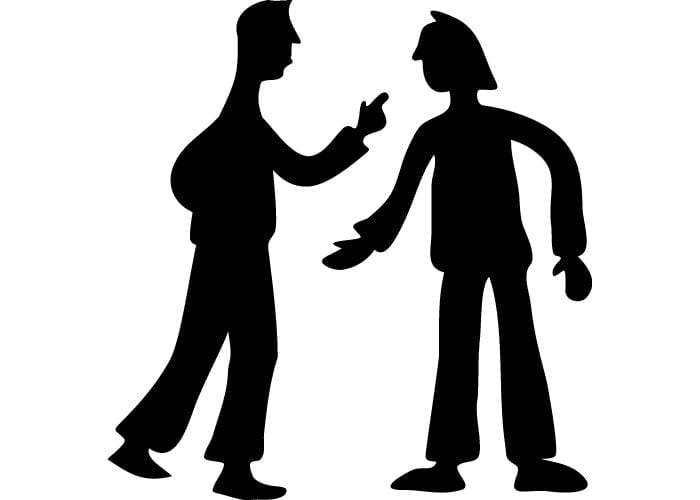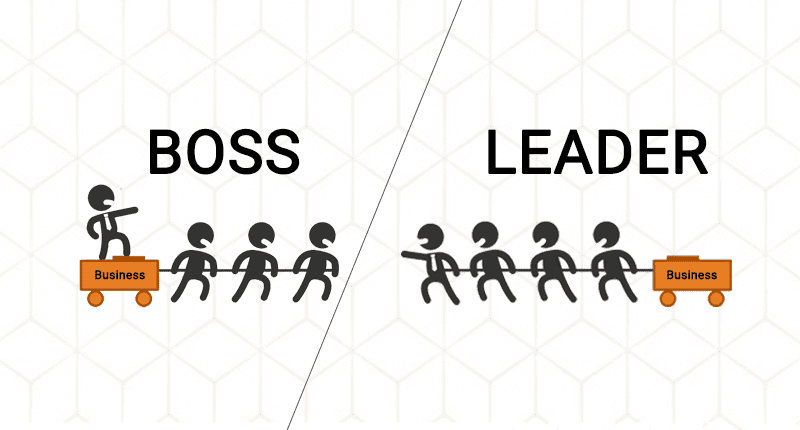Our ability to work together has a big influence on our happiness at work. There have been numerous surveys and studies conducted during the past decade that have shown the link between team effectiveness and employee engagement. High-performing teams are made up of individuals who share a common purpose and are united in working towards that goal. The information shared in this article will help you understand the 8 characteristics of teamwork.
Jump To Section
What Are the 8 Characteristics of Teamwork?
- Clear Purpose, Vision, Mission, and Goals
- Strong Communication
- Trust and Respect in Each Other
- Good Conflict Management
- Have an Effective Leader
- Members Know Their Roles
- Team Members are Committed to the Team
- Hold Each Other Accountable
Characteristic #1: Clear Purpose, Vision, Mission, and Goals

If you ask people in different teams inside the same organization to describe their purpose, vision, mission, and goals, they’ll likely give you very different answers.
It’s not that any of those answers are necessarily wrong or bad. It’s just that without a central set of priorities and direction from leadership, it’s easy for people to get off track.
When teams don’t have clarity around those things, it becomes impossible for them to work together toward a common purpose. They might be putting in the effort and working hard, but without a clear sense of what they’re supposed to accomplish together, that effort is unlikely to produce the best results.
For example, A marketing team might feel pressure to launch campaigns before products are ready because that’s what leadership wants them to do. But if the product team doesn’t have time to make all the necessary features available before launch day, those campaigns could end up costing more money than they generate in revenue. Some marketers might even start cutting corners instead of asking for help from other teams. Which could result in poor quality products or customer service as well as wasted marketing spending.
A solid vision is a vital characteristic of effective teams.
A vision statement is a great way to get team members on the same page. It defines the expectations of your team to learn how to create a vision statement for your team check out my article on it.
Characteristic #2: Strong Effective Team Communication

Every member of an effective team knows how to communicate with one another. That doesn’t mean they’re all talkers. Some introverts may simply be great listeners who contribute in other ways.
The point is that everyone on your team should feel free to speak up when they have something to say and work toward solutions together.
In business, miscommunication and poor collaboration can lead to mistakes, missed deadlines, and unhappy customers. And when it comes down to it, poorly functioning teams take more time and money than they’re worth.
Here are some tips for promoting strong communication on your team:
Organize regular meetings with your team members. Even if there’s nothing to discuss, these meetings can be a good opportunity for everyone to get together and get to know each other better. Encourage everyone to share their thoughts and give feedback on the topics discussed.
Have open-door policies in place. Make sure everyone knows that they can come to you whenever they need any help or want to discuss something with you. Also make sure they know that you’re open to hearing their ideas and feedback on anything related to work, whether it’s about new ways of doing things or improving existing processes.
Conduct regular performance reviews with employees. This will help ensure that everyone is on the same page when it comes to expectations for each individual member.
If you want more info on communication skills, check out this article on mastering your communication skills.
Characteristic #3: Trust and Respect in Each Other
The best teams are those where members not only have essential skills but also trust each other enough to take risks together. They are comfortable being themselves, even when that means being opposed.
Trust and respect are the foundations of every good working relationship and every successful team. The more trust you build with your teammates, the more likely it is that you will achieve your goals. But trust can be difficult to develop, especially when people have different ways of working and there’s a lot at stake.
To build trust and respect on your team, you first need to understand what trust means to people on your team. For some people, it means being able to ask questions openly; for others, it means feeling they can admit their mistakes. Sometimes, respect means being heard by their teammates; other times, it means acknowledging each other’s input and making decisions together as a group.
Schedule time with team members one-on-one to talk about what trust and respect mean to them. If you think they may be hesitant to open up with you in an individual meeting, try meeting in pairs or small groups so they feel more comfortable sharing their opinions. Make sure everyone gets a chance to express him or herself before you share your thoughts or vision of how the team will work together.
Characteristic #4: Good Conflict Management

When people work together, there’s always a chance that they’ll clash. But if you’re smart and proactive, you can head off many problems before they happen — or at least stop them from spiraling out of control.
The key to good conflict management is to understand what causes conflict, how it escalates, and how you can use conflict resolution strategies to de-escalate situations, resolve them and even come up with creative solutions that satisfy everyone’s needs. I wrote an article on conflict management in the workplace that is a great resource for keeping the peace.
Some conflicts are inevitable and even productive. People will disagree about who ought to get a raise or what the best design for a product might be. Some conflicts can become heated but are really just an exchange of ideas. Even if it feels uncomfortable, conflict in the workplace can lead to better decisions and stronger teams if it’s handled in a healthy way.
Conflicts can spring from all sorts of sources, but there are a few common ones:
Personal differences — Two people just don’t get along because of their personalities and backgrounds.
Miscommunication — People working together misunderstand each other, which leads to hurt feelings or arguments.
Unclear expectations — Lacking clear goals or project management can lead to frustration when people don’t know what they need to do.
Lack of resources — People are often expected to do more work than they can handle, which leads to stress and conflict.
Characteristic #5: Have an Effective Leader

An effective leader is a person with a passion for a cause that is larger than they are. Someone with a dream and a vision that will better society, or at least, some portion of it.
Effective leaders have the following qualities in common:
They’re committed to their cause. This is probably the most important quality for an effective leader to possess. A leader has to believe in something, or believe in making something better than it currently is. A leader who doesn’t truly believe what they are doing isn’t going to be able to convince anyone else to believe it either.
They have strong communication skills. Leaders need to communicate effectively and clearly convey their vision or mission. They should be able to impart this message through both spoken and written words so that others understand where the organization is headed, what its goals are, how it plans to get there, and why it’s important for them to be along for the ride. This requires a combination of strong verbal rhetoric along with written materials like pamphlets, brochures, newsletters, and other publications that can help spread the word about their cause or goal.
They understand their role as servant-leaders. The most effective leaders don’t seek power over others; they seek power within themselves.
These are just some of the important qualities of an effective leader, to discover more you’ve got to read my article on them.
Characteristic #6: Members Know Their Roles
Roles are a crucial component of any high-performing team.
I previously wrote an article on the various roles of team members. In that article, I explain how they give your team members a clear understanding of their jobs and an idea of what they need to do to succeed. It also helps make sure that everyone is on the same page.
We see this play out in sports all the time: The quarterback gets the ball, throws it to the receiver, who then runs downfield and scores a touchdown.
But if you ask each player why they did what they did, you’d get wildly different answers:
Quarterback: “I threw the ball because I’m responsible for moving it down the field.”
Receiver: “I ran downfield because I’m responsible for catching the ball.”
But on a team, these individual roles can often be vague and incomplete. That’s because people at work tend to assign themselves generic titles like ‘team member’ or ’employee.’ While that may seem harmless enough, it can cause confusion when it comes to job responsibilities.
Characteristic #7: Team Members are Committed to the Team

The success of a team depends on the commitment of its members. Members need to be committed to their own individual roles as well as to the team and its goals. To manage high-performance teams, you must make sure team members understand their roles and responsibilities and that they are dedicated to the success of the team.
When you’re leading a team, it’s up to you to keep each member committed to the team’s success. That requires getting people to think beyond their individual job responsibilities (which they may already be focused on) and think about how they can support each other to achieve the best results for your business.
Here are some ideas to get team members committed to the success of the team:
Set aside time for brainstorming, and encourage everyone to participate. This helps you overcome the problem of one or two people dominating the conversation and it ensures that everyone feels heard.
Make it easy for team members to provide input at any point in the process. When they feel like they’re part of a collaborative effort, they’re more likely to stay engaged.
Share ownership of both successes and failures, even if there are only one or two people responsible. This helps to avoid finger-pointing when things go wrong and builds trust within the team.
Characteristic #8: Effective Teams Hold Each Other Accountable
Accountability is another characteristic of effective teams. When individual teammates fail to deliver, they affect the success of the team. They can also cause others to pick up the slack and take on extra tasks. Over time, it can be exasperating and demoralizing to work with a teammate who can’t be trusted to do their part. If this is familiar, here are some things you can do:
Talk to the teammate. Sometimes, people need encouragement or guidance about how to do a task. Make sure you ask for their input and consider what they have to say.
Make sure you’re giving enough lead time for tasks. If you don’t give people enough time to complete a task, they won’t be able to follow through on it.
Assess whether the problem is poor performance or incompetence. Incompetence is sometimes hard to deal with because it may reflect on your judgment in choosing them as a teammate. But if someone just isn’t cut out for a job and it doesn’t seem likely that they will improve, you may need to find someone else who can do the work properly (and fire them).
The Role of Leadership in Building Effective Teams
Leadership is crucial in building effective teams. As a leader, you must set the tone, establish clear goals, and create a supportive environment.
Leading by example is essential. You need to model the behavior you want to see in your team members, such as a strong work ethic, clear communication, or a commitment to the team’s goals.
Creating a culture of trust and respect is also vital. Team members need to feel valued, engaged, and invested in the team’s success. This requires open communication, active listening, and opportunities to share ideas.
Effective leaders must possess conflict management skills to resolve issues that arise within the team. This involves identifying the root causes of conflicts, facilitating discussions, and finding mutually beneficial solutions.
Lastly, leaders must provide ongoing support and guidance to their team members. This means setting clear goals, providing feedback and coaching, and offering opportunities for growth.
In summary, leadership is critical to building effective teams. By setting the tone, creating a positive team culture, managing conflict, and providing ongoing support, leaders can help their teams achieve their goals.
Final Thoughts on the 8 Characteristics of Effective Teams
The good news is that you can build a more effective team. One of the key building blocks is understanding each individual’s communication style and personality type. Once you have that in place, you can start to practice teamwork by supporting each person’s efforts. Furthermore, challenging each person to stretch further, and encouraging the expression of ideas.
In the end, teams are a reflection of the work environment in which they exist. They can be incredibly effective if individuals within the team support and encourage each other. But they can also become dysfunctional when disagreements cause the team to break down and fail. In other words, don’t lose sight of the end goal.
A great team creates great results both overall and for every individual member. So, put time into getting each person on board with your organization’s objectives, as well as with each individual’s role in accomplishing those objectives.
Did you enjoy this article on the 8 characteristics of teamwork? Don’t forget to share and subscribe for more Growth Tactics.
FAQ
Q: What are the eight characteristics of effective teamwork?
A: The eight characteristics of effective teamwork include open communication, clear roles and responsibilities, trust among team members, collaborative problem-solving, strong interpersonal skills, adaptability, a focus on team goals, and a positive team culture.
Q: How do high-performing teams demonstrate effective communication?
A: High-performing teams demonstrate effective communication through regular check-ins, active listening, sharing feedback openly, and utilizing project management software to keep everyone informed and aligned on tasks and goals.
Q: What role does team culture play in building high-performance teams?
A: Team culture plays a crucial role in building high-performance teams by fostering an environment of trust, respect, and collaboration, which encourages team members to feel valued and engaged in their work.
Q: How can adaptable teams improve their performance?
A: Adaptable teams can improve their performance by being open to change, embracing new ideas, and adjusting their strategies based on feedback and the evolving needs of the project, which enhances their overall effectiveness.
Q: What are some effective strategies for enhancing employee engagement in teams?
A: Effective strategies for enhancing employee engagement include setting clear team goals, recognizing individual contributions, encouraging open communication, and providing opportunities for professional development and team-building activities.
Q: Why is it important to define roles and responsibilities within a team?
A: Defining roles and responsibilities within a team is important because it helps clarify expectations, reduces confusion, promotes accountability, and ensures that all team members understand how they contribute to the team’s success.
Q: How can project management software facilitate effective teamwork?
A: Project management software facilitates effective teamwork by providing tools for task assignment, progress tracking, deadline management, and communication, which helps teams stay organized and focused on their objectives.
Q: What are some key interpersonal skills necessary for high-performing teams?
A: Key interpersonal skills necessary for high-performing teams include effective communication, active listening, empathy, conflict resolution, and the ability to collaborate and build relationships among team members.
Q: How does strong team collaboration impact project outcomes?
A: Strong team collaboration positively impacts project outcomes by enabling diverse perspectives to be shared, enhancing problem-solving capabilities, fostering innovation, and ultimately leading to higher quality results and increased efficiency.
Q: What makes a high-performing team different from an average team?
A: A high-performing team is characterized by strong communication and collaboration, clear goals, mutual trust, accountability, and a shared commitment to excellence, whereas an average team may struggle with these elements, leading to less effective teamwork and outcomes.


